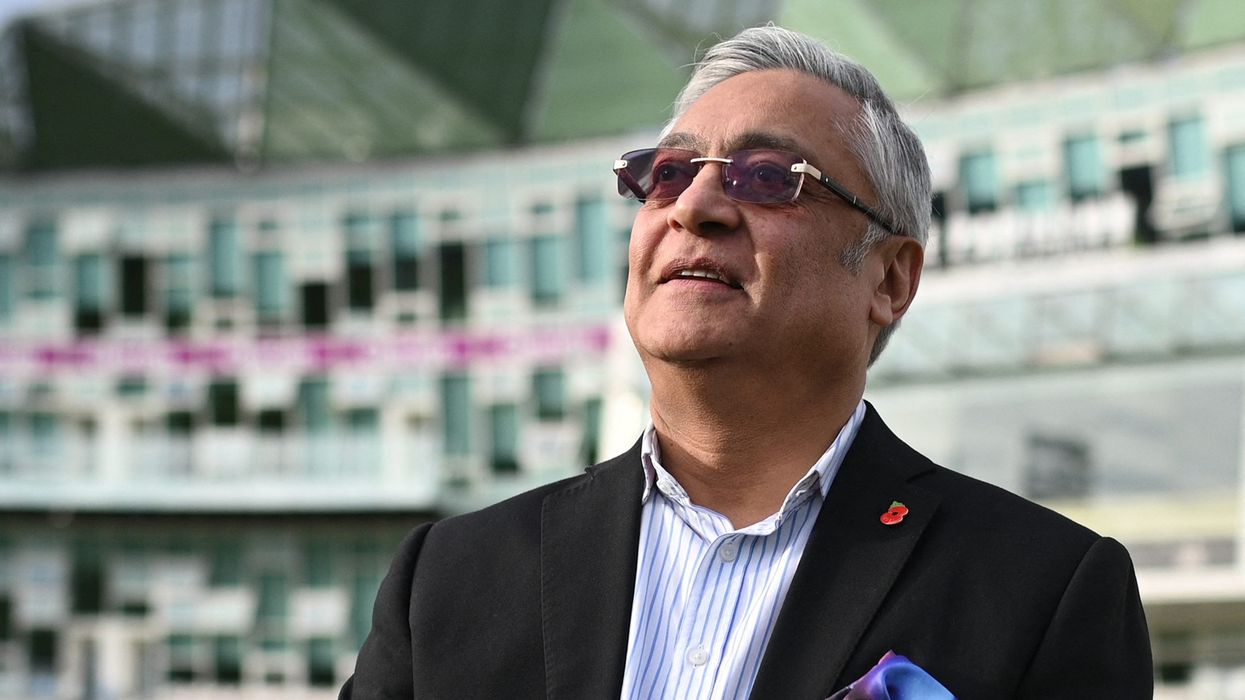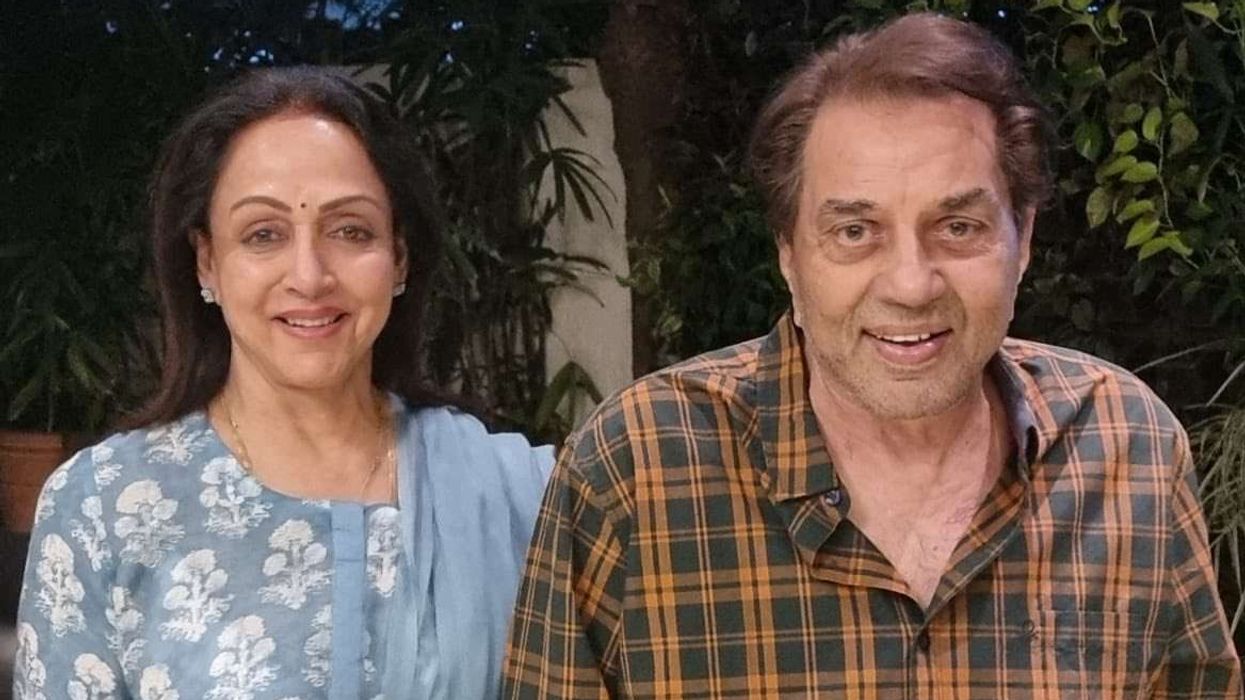“IT has been a year unlike any other,” Lord Kamlesh Patel of Bradford told the GG2 Power List. The Yorkshire spent 2022 “taking Yorkshire County Cricket Club” on a journey. By his own admission it was challenging and one which has left him “disheartened and disappointed” by a game he loves and a county he adores.
The cricket club were rocked by allegations of racism when their former club captain, Azeem Rafiq, appeared in front of the media and sport select committee. In tears at times, Rafiq told the world how he was racially abused, and how he as ignored by the club.
When Patel started to look under the bonnet, when he started to make decisions, when he started to shake-up the entire infrastructure by sacking directors and other club staff, a tiny cabal made his life hell, he said.
“This is not just a Yorkshire problem. This is a cricket wide problem. And I hope we'll see that when the independent equity commission on cricket reports. We had several decades of people who came and complained to me. So, this wasn't just about Azeem Rafiq, hundreds of people came to me and said, this has been going on, this happened to my child, or this happen to me when I was a child at Yorkshire. So, Azim was the only one brave enough to step up and carry on the battle. Others just gave up, and I think had I not been in the position I was, I would have given up because it was just relentless, and you're fighting the system. But this is across the game of cricket, and this is a big issue, and it needs dealing with. Where you've had absolute proof that discrimination had taken, potentially unlawful discrimination, these people still believe nothing was wrong.”
The peer operates in a way that diplomats should look, listen and take lessons. Gentle, mild-mannered, and polite he might be, but never, ever underestimate him. From day one, he told a packed news conference at Headingly, “Racism or any form of discrimination is not banter.”
The England and Wales Cricket Board [ECB] asked Patel to deliver the impossible. Turn the trashed reputation of Yorkshire around. We can disclose that the ECB urged him to get rid of people. Patel never badmouths people or organisations. But he revealed to the Power List that when the going got tough, the ECB did not back him.
“I was asked by the ECB to ensure some people who were there from the previous regime did not take part in that governance process. Very clear about that. So, when I'm attacked, for things that I have been asked to do, I've been attacked from all quarters, where the ECB could have made the statement and could have come and supported. And when I sent letter after letter to them, to say you asked me to do this, I've done it, and now I need your support to back me up on it, that wasn't forthcoming.
“Now, whether that's me or somebody else, if that happens in the future, they're not gonna encourage anybody else to go on this journey. If you're gonna ask people to come and put their necks on the line, to achieve radical change, to make change, and not support that change, then why would anybody do it?”
We should also remember that this humble Yorkshireman, and he is fiercely proud of his county, stepped down as deputy-chair of the ECB and senior independent director of the England and Wales Cricket Board (ECB) in August 2020. He is in his second term as chair of Social Work England (SWE) and other boards, including being the deputy chair of the British Board of Film Classification (BBFC). Oh, he is also an active hands-on grandfather. When you read his registered interests, you wonder how he has enough hours in the day. But it is the controversy at Yorkshire which has taken up much of his time and taught him a lot.
“If I'm going to say that in future, I will say, I will try and take people on the journey. But on that journey, some people get off the bus quicker than others, and they will get off the bus quicker than others. Because my belief as a social worker, is that everybody can change, and if given the right support and guidance. But some people can’t when it comes to racism, and discrimination, and not seeing what's what they can’t [change].
“I think I'd be saying, yeah, there's, there'll be people who, from childhood have been brought up to believe some of the people are inferior to them, and they will change. Sometimes there's not enough time and energy and effort to help people travel from a position where they are to another position.”
By the time the Power List is published, the peer will have left Yorkshire County Cricket Club. His decision to step down as chair was because every time he wanted to make changes, his detractors would target him. That made it difficult to do his job, he said.
“A small number of people, a small number, but a very powerful group of people, have spent the last two to three decades at Yorkshire, who have overseen the discrimination, the racism, waged a campaign of trying to undermine every move I made, literally ensuring that I would be removed and destroyed, so they could take over the club again, with no feeling or thought about what it would mean to Yorkshire cricket, and that hasn't stopped.
“It was relentless. I was working with hardly any staff, working with good friends and volunteers 24/7. And all they were doing was trying to undermine me with procedural roadblocks. They cost the organisation, hundreds of thousands of pounds, well, millions, if you talk about sponsorship that we'd lost because of their constant PR campaign, their constant attack. We lost a fortune in legal fees, defending the untruths they were throwing about.
“They were giving voice to other people. It's a real shame, and I don't want to have a go at the media in any way, shape, or form, but it's very clear from all the evidence that two or three media outlets were not prepared to listen to anything else except these people. And that that was hurtful. We had a small group of people who worked with them, who were blatantly racist and just sent me racist letters, in social media and attack me every single day. If I was a white chairman and capture none of that would have happened.”
Humility and humour are Patel’s trademark. His easy-going nature – he does not stand on ceremony – belies a steely resolve. He may remain ‘Kamlesh’, who came to the UK from Nairobi, Kenya, aged one-and-a-half, on a plane ticket which cost just over nine pounds, but he knows when and how to be serious. He saw his parents struggle when they left east Africa soon after Kenya’s independence leader, Jomo Kenyatta, came to power.
“The early 60s were a tough, tough time in the UK. My two brothers, my two sisters, my mum, dad and I lived in fairly difficult circumstances. A one-bedroom back-to-back terrace. No bathroom, a kitchen that was about two-foot-by-two-foot and an outside toilet.
“My dad really struggled to find work in those early years. There were lots of discrimination, blatant racism, and that made you look at the world through those, for want of a better word, migrant eyes, and the social inequality they faced.”
“My father was previously a maths teacher,” remembers Patel. “He was also a Brahmin priest, and he was quite talented actually. He was a master chef, and he used to cook some phenomenal meals. My mum looked after us when we came here, he could do none of that, and he spent his life cleaning buses. He got us out of poverty by actually using the skills he had as a priest as lots more Asian people came to the country, and he cooked for wedding parties.”
Seeing his parents work ethic, it is no surprise that Patel too began earning money early.
“I've been working since I was 16. Sweeping floors, working at the bar, a silver service waiter, sold life insurance, second-hand cars, a betting office manager and even did some accountancy for an employment agency. I worked hard in all of those jobs, and I wanted to be the best that I could be. I worked in the ambulance service which, like now, was difficult to manage on those salaries at that time.”
But it was his passion for social justice which marked Patel out. Eventually, at 27, he went to university and qualified as a social worker. He was a professor at three universities, and he has numerous honorary doctorates from esteemed higher education institutions. Patel set up the Centre for Ethnicity and Health, and the International School for Communities, Rights and Inclusion at the University of Central Lancashire. There he brought in more than £30 million in grants and employed 100 staff. Remarkably, he does not have a first or any kind of degree.
It was the peer’s pioneering work in drug use among south Asians, mental health and community engagement which propelled him to where he is today. Patel has been appointed to many government bodies and led a number of reviews. He persuaded the Blair administration to introduce an annual census on mental health patients, in 2005 for example.
The Patel report: Reducing drug-related crime and rehabilitating offenders in 2010 remains influential and cited as best practice in its field. So, it is little wonder the prime minister reappointed him for a second term, months before his old contract ended, to chair the body which regulates social workers.
“We've established processes which are very different to any other health and social care regulator. We did this by using our unique legislative powers to good effect and have developed an effective regulator in collaboration with the profession and those with lived experience. Our powers enable us to deal with fitness to practice cases far more efficiently involving professional social workers every step of the way, as well as independent people. The ultimate sanction is of course the ability to strike a social worker off the register, if it’s proven that they are not fit to practise.”
But the Yorkshire cricket saga has taken its toll. Patel revealed that in 2023 he will step down from various roles, including Social Work England and Chair, Independent Health Providers Network (IHPN). It is time, he said, to take a break and spend time with his family. During his conversation with the Power List, Patel talked about “elephants in the room” when he was chair of his favourite county and favourite cricket club. And one elephant was the fact some white people still have a problem taking instructions from brown people.
“Yeah, I am brown, and I'm Indian, but I’m a Yorkshireman through and through. I love Yorkshire, and that's why I went to do the job I did. And the majority of Yorkshire people were with me white, brown, black they were with me and supportive. A small group of the establishment, the hierarchy, who believe they have some special status in life, would they have done that to somebody who wasn't white? Probably not. Probably not.
“I've never gone on the race card. It's not about me. You see me as you get me. I'll work with things. I'll try and do things right. Occasionally I make mistakes, but I'll rectify them quickly, if I have. I do not believe fundamentally, I do not believe, that I did anything wrong at Yorkshire. I think all the actions I took were absolutely right. And would taking them again? Yes, I’d take them all over again. I'd probably be even more stronger in what I did.”








